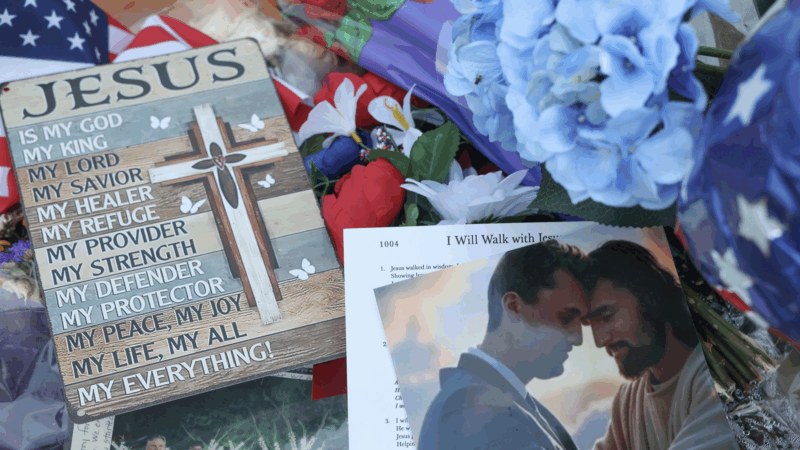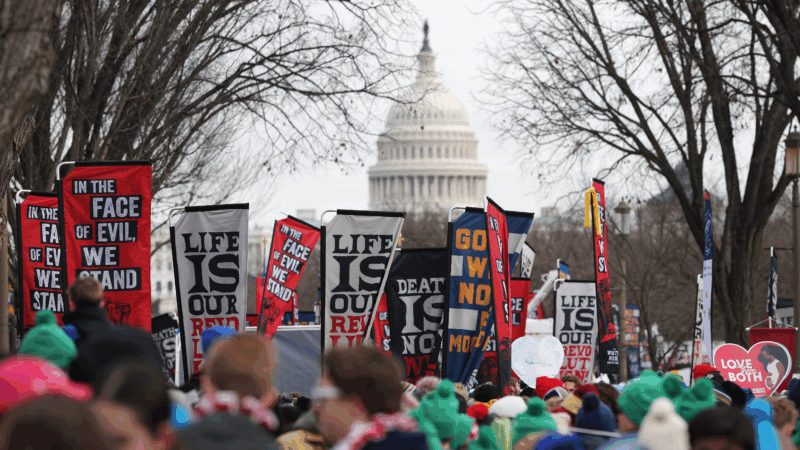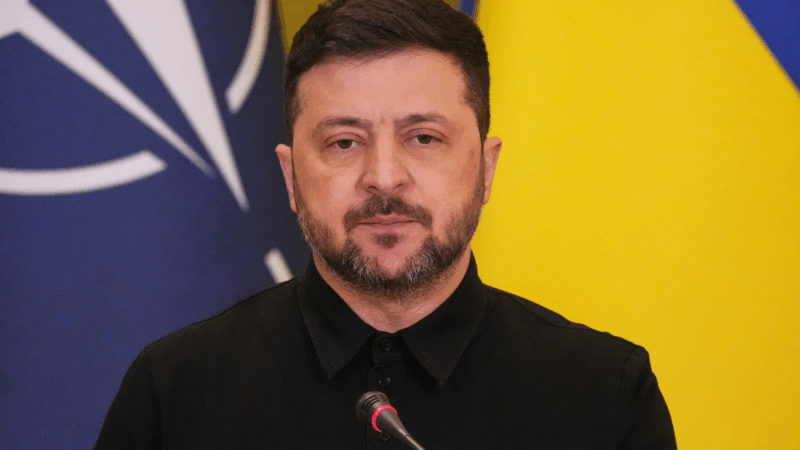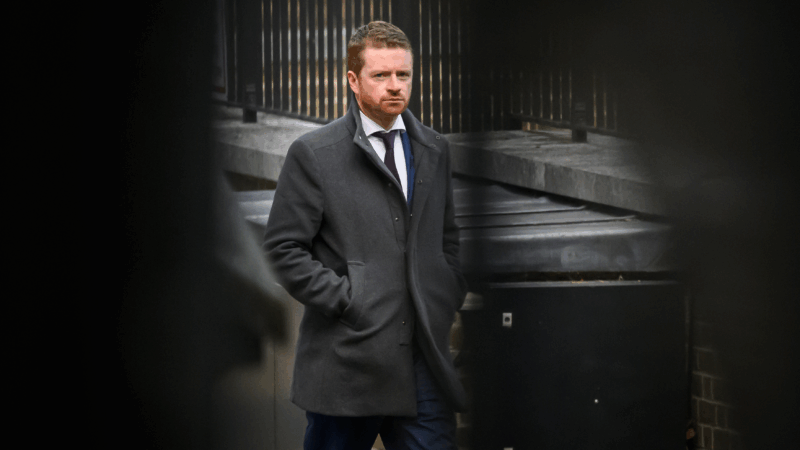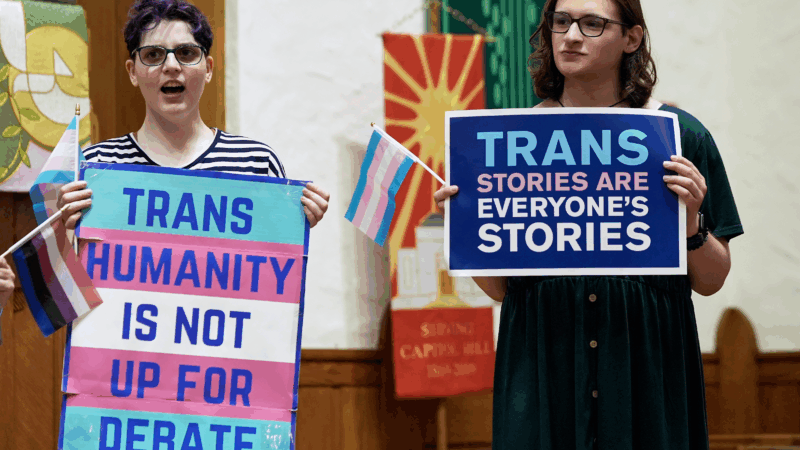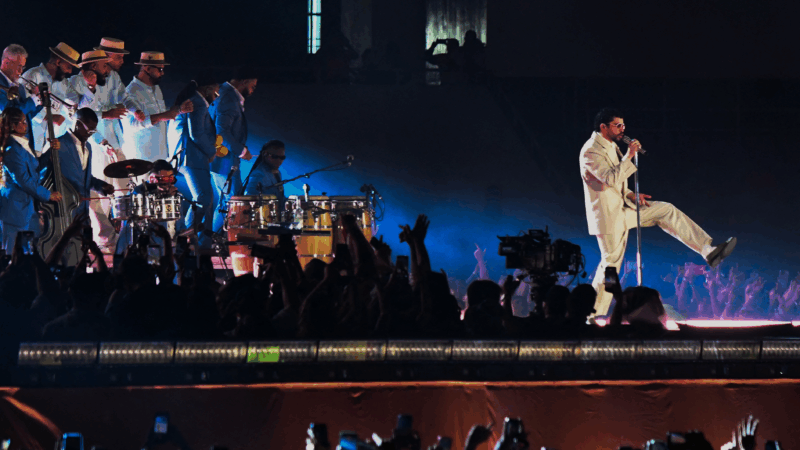The evangelical Christian faith on display at Kirk’s memorial shaped his politics
Charlie Kirk’s evangelical faith was on display at his memorial service this weekend in Arizona.
The service, held on a Sunday morning, felt much like a worship service, complete with prayers, songs and a call from Kirk’s widow to “forgive” Kirk’s alleged killer “because it was what Christ did.”
The event opened with performances of contemporary Christian worship music and Kirk’s colleagues and friends referred to him as both a prophet and a martyr.
Vice President Vance said that he talked more about his faith in the two weeks since Kirk’s assassination than he had in his entire public life. He thanked Kirk for championing his political career from the beginning, when he was still a long-shot candidate for one of Ohio’s U.S. Senate seats.
President Trump, who spoke last, described the event as an “old-time revival.” He called Kirk, a conservative activist, “our greatest evangelist for American liberty” and “a martyr now for American freedom.”
Kirk’s faith was central both to his life and to his political views. He grew up attending Christian school and, like many evangelicals, said he made a decision at a young age to give his life to Jesus.
In an interview six years ago with David Brody of the Christian Broadcasting Network, Kirk said his faith had deepened around the time he got out of high school and founded Turning Point USA.
“I started to come in a much closer relationship with Jesus Christ and reading my Bible more and becoming more, essentially, unapologetic about my Christianity,” Kirk said. “I was given a choice; I could try to descend more into this kind of secular world, or reaffirm my faith, and that’s exactly what I did.”
After founding Turning Point USA, a political organization for young conservatives that describes itself as training young people to promote ideas like free markets and limited government, Kirk later founded the more explicitly religious TPUSA Faith, whose mission is to “eliminate wokeism from the American pulpit.”

Kirk often referenced his Christian faith when he talked about political issues, such as his belief that when it comes to helping the needy, churches — not the government — should be responsible.
He cited his faith in connection with many of his most controversial ideas. He described DEI, or diversity equity and inclusion, as “unbiblical.” He argued against abortion by saying that an embryo is “a baby made in the image of God deserving of protection.” And he described being transgender as “a throbbing middle finger to God.”
Kirk appeared to experience a shift in his thinking about the proper role of religion in politics over the course of his public life.
Earlier in his career, he expressed the view that Christian conservatives had at times gone too far in trying to impose their religious beliefs on the rest of society through politics. In 2018, while talking with the conservative podcaster David Rubin, he said he believed that was a mistake.
“It’s the imposition of those values through legislation and government which is something I don’t necessarily support. So I try to always advocate for every one of my political positions through a secular worldview,” Kirk said.
At that time, Kirk went on to say that he believed in the separation of church and state. But he later reversed that and described the idea as a “fabrication.”
More recently, Kirk argued that the U.S. was set up by and for not just Christians, but specifically Protestant Christians. Kirk said he didn’t believe the country could function well any other way.
“The body politic of America was so Christian and was so Protestant that our form and structure of government was built for the people that believed in Christ our Lord,” Kirk said in 2024. “One of the reasons we’re living through a constitutional crisis is that we no longer have a Christian nation, but we have a Christian form of government, and they’re incompatible. So you cannot have liberty if you do not have a Christian population.”
Soon after Kirk’s death on Sept. 10, evangelical leaders were already labelling him a martyr. Cissie Graham Lynch, the granddaughter of the late evangelical leader, the Rev. Billy Graham, compared Kirk to “a modern-day Stephen,” referring to the man recognized as Christianity’s first martyr.
Other observers are concerned by this kind of framing. Matthew Boedy, an English professor at the University of North Georgia who studies Christian nationalism, warns that talk of martyrdom can lead to dangerous and sometimes violent escalation.
“The reason that it’s dangerous is because we can see throughout the history of the church, using ‘martyrdom’ often rallies people to go after their enemies and to commit crusades of different types,” Boedy recently told NPR and WBUR’s Here & Now.
March for Life attendees may have been exposed to measles, DC Health warns
D.C. health officials are contacting people possibly exposed to measles at the March for Life in January, as confirmed cases rise nationwide.
U.S. gave Ukraine and Russia June deadline to reach peace agreement, Zelenskyy says
"The Americans are proposing the parties end the war by the beginning of this summer," Zelenskyy said, speaking to reporters on Friday.
U.K. leader’s chief of staff quits over hiring of Epstein friend as U.S. ambassador
British Prime Minister Keir Starmer's chief of staff resigned Sunday over the furor surrounding the appointment of Peter Mandelson as U.K. ambassador to the U.S. despite his ties to Jeffrey Epstein.
Trump administration lauds plastic surgeons’ statement on trans surgery for minors
A patient who came to regret the top surgery she got as a teen won a $2 million malpractice suit. Then, the American Society of Plastic Surgeons clarified its position that surgery is not recommended for transgender minors.
What you should know about Bad Bunny’s Super Bowl halftime show
Will the Puerto Rican superstar bring out any special guests? Will there be controversy? Here's what you should know about what could be the most significant concert of the year.
Sunday Puzzle: -IUM Pandemonium
NPR's Ayesha Rascoe plays the puzzle with KPBS listener Anthony Baio and Weekend Edition Puzzlemaster Will Shortz.

